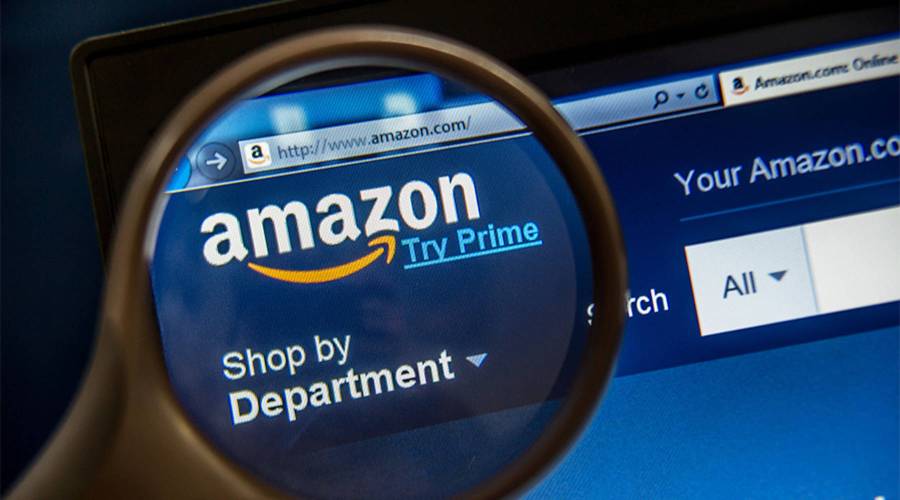“Amazon’s Choice” does not vouch for product quality

I need a glockenspiel, because why not? I know pretty much nothing about what makes for a good glockenspiel. When you search for “glockenspiel” on Amazon, you get flooded with more than 1,000 results. Fortunately, one of the results has the label “Amazon’s Choice.”
But it turns out that that label isn’t always a great indicator of quality. I spoke with Nicole Nguyen, who is a technology reporter at BuzzFeed News. The Amazon’s Choice label helps boost an item’s sales, which also helps Amazon, since it gets a cut. But Nguyen said there’s not much known about how the designation gets awarded. The following is an edited transcript of our conversation.
Who is choosing this product? Is it Jeff Bezos himself, an Amazon employee, is it a robot?
Nicole Nguyen
Nicole Nguyen: Who is choosing this product? Is it Jeff Bezos himself? An Amazon employee? Is it a robot? Amazon is pretty much a black box in terms of how big their marketplace is, how many products get Amazon’s Choice [as a] designation. And the reason why they don’t publicize those numbers is because they’re changing all the time. Because Amazon’s Choice, partially automated, is awarded and then taken away every single minute of every day. It’s impossible to track. But anecdotally, Amazon’s Choice is not indicative of high-quality products necessarily.
Jed Kim: How can this be manipulated?
Nguyen: Because review manipulation is so widespread on the platform, and by review manipulation, I mean fake reviews or reviews for an entirely different product that isn’t the product in the listing. If reviews are one of the metrics used to gauge whether a product should get this very special label, there’s no reason for consumers to trust Amazon’s Choice.
Kim: What is the solution here? Do I need to double-check all my purchases [with] Consumer Reports or something like that?
Nguyen: Yes, I highly recommend doing off-Amazon research. Do a cursory Google. Does that brand exist outside of Amazon? A quick search can really mitigate a lot of that. Read the reviews, [and] if the reviews are suspiciously all five stars, that’s a huge red flag. If the reviews don’t even refer to the product that’s being sold, that’s a huge red flag. There are sites like Consumer Reports and Wirecutter and Good Housekeeping that scientifically review and recommend products. I would highly recommend using those sites while you’re shopping.
Kim: I’m shocked that the five-star thing is a red flag because my goal is to find the product that’s as close to five stars as possible, but you’re telling me that’s a mistake.
Nguyen: It’s deeply upsetting because rating systems are everywhere — TripAdvisor, Yelp, Amazon — and they can all be manipulated very easily. And this is 2019.
Related links: more insight from Jed Kim
The Wall Street Journal wrote recently that Amazon essentially gave up control of its site to third-party sellers. That’s led to a lot of unsafe products being listed for sale. The Journal said it found more than 4,100 items that were “declared unsafe by federal agencies, are deceptively labeled or are banned by federal regulators.” Amazon’s legal defense — because there have been lawsuits over deaths related to some of the items — is that it just provides a platform for third-party sellers. By the way, third-party sales now account for 60% of what gets sold on Amazon.
Amazon-owned Audible is being sued by several major book publishers over a new feature it’s releasing in some public schools. The Verge explains that the feature provides captioning of audiobooks so that listeners can read along in real time. The problem is that Audible hasn’t licensed the audiobooks it bases its speech-to-text-captioning on. Audible believes it’s protected because the words are generated by artificial intelligence.
Got to have more glockenspiel? We’ve got a link to a video of a pretty epic marimba and vibraphone performance. And yes, I know it’s not a glockenspiel. I just want you to know what I’m going to look like when I play mine.
The future of this podcast starts with you.
Every day, the “Marketplace Tech” team demystifies the digital economy with stories that explore more than just Big Tech. We’re committed to covering topics that matter to you and the world around us, diving deep into how technology intersects with climate change, inequity, and disinformation.
As part of a nonprofit newsroom, we’re counting on listeners like you to keep this public service paywall-free and available to all.
Support “Marketplace Tech” in any amount today and become a partner in our mission.






















